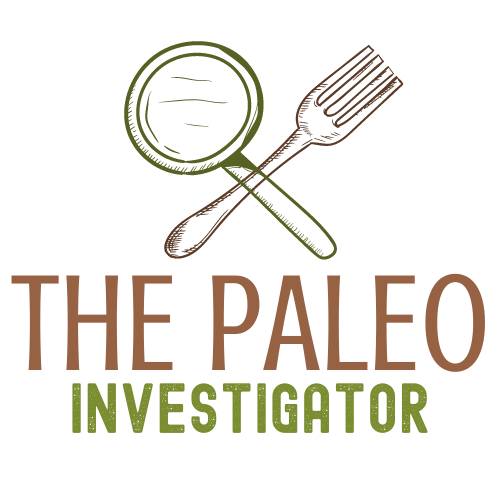Washing your hands with soap and water can keep germs out of your food and reduce your chances of catching viruses. Some people wonder if this habit applies to produce, too. Should you be washing fruit, veggies and other food items with soap?
Why Washing Produce With Soap Is a Bad Idea
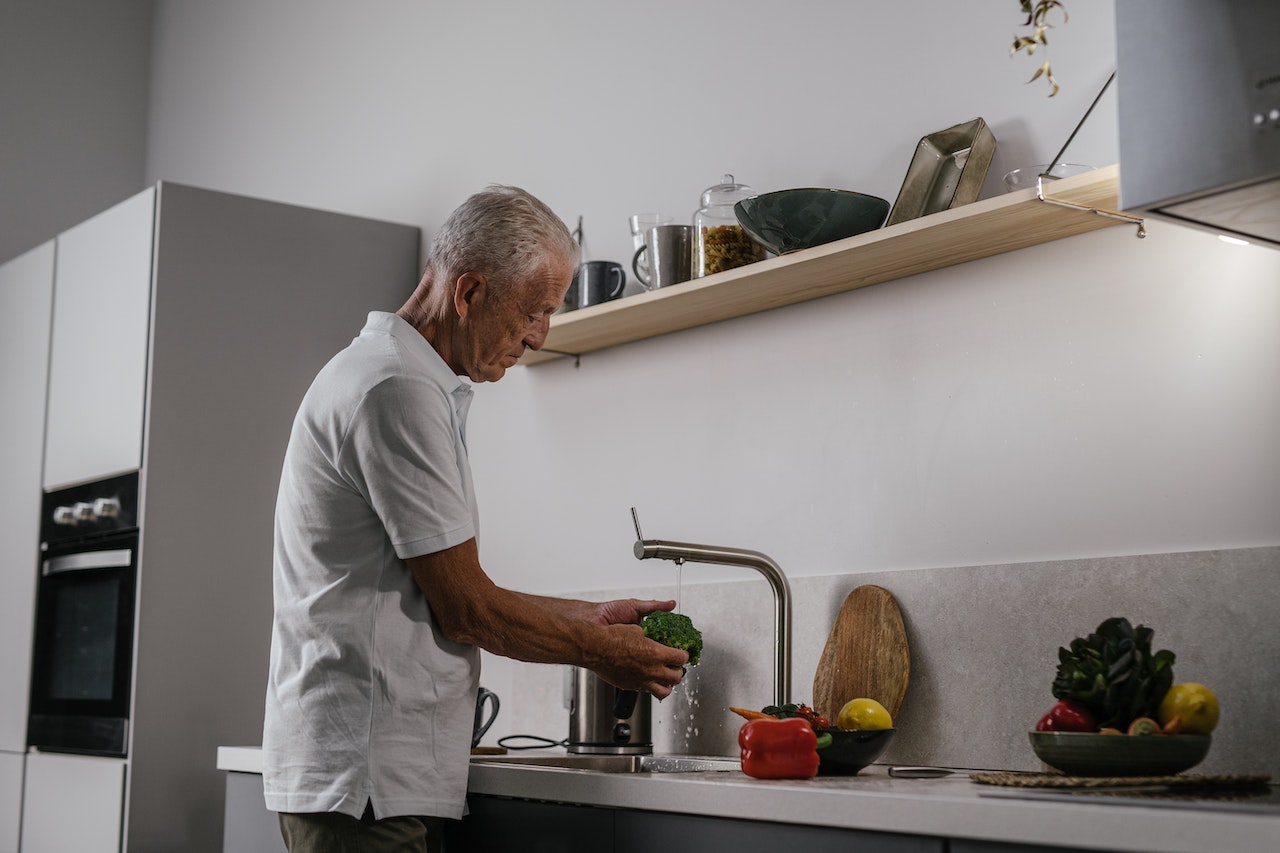
The direct answer to this question is a resounding “no.” According to health professionals, you should never wash produce with soap or sprays, even if the product says it’s for vegetables. Don’t use diluted bleach, dish soap, detergents or disinfectant chemicals, either.
There are several reasons why these items are a bad fit for produce:
- Soap leaves chemicals behind: Cleaning products, including hand soap, can leave behind chemical residues that are hard to rinse off. You don’t want these chemicals to get into your food.
- Detergents are dangerous for your digestive system: Dish detergents and laundry detergents can trigger serious health problems if they find their way into food. Depending on the amount, it can even be necessary to call the local poison hotline.
- Chemicals can absorb into vegetables: Is it OK to scrub potatoes or other veggies with soap as long as you rinse thoroughly afterward? No. Many foods, including potatoes, beans, onions and carrots, can absorb cleaning products like a sponge.
- Harsh products damage veggies: The ingredients in soaps can ruin leafy greens and other delicate fruit and veggies. It can strip them of important nutrients, too. Even antiseptic alcohol can harm produce.
Why Should You Rinse Fruit and Veggies?
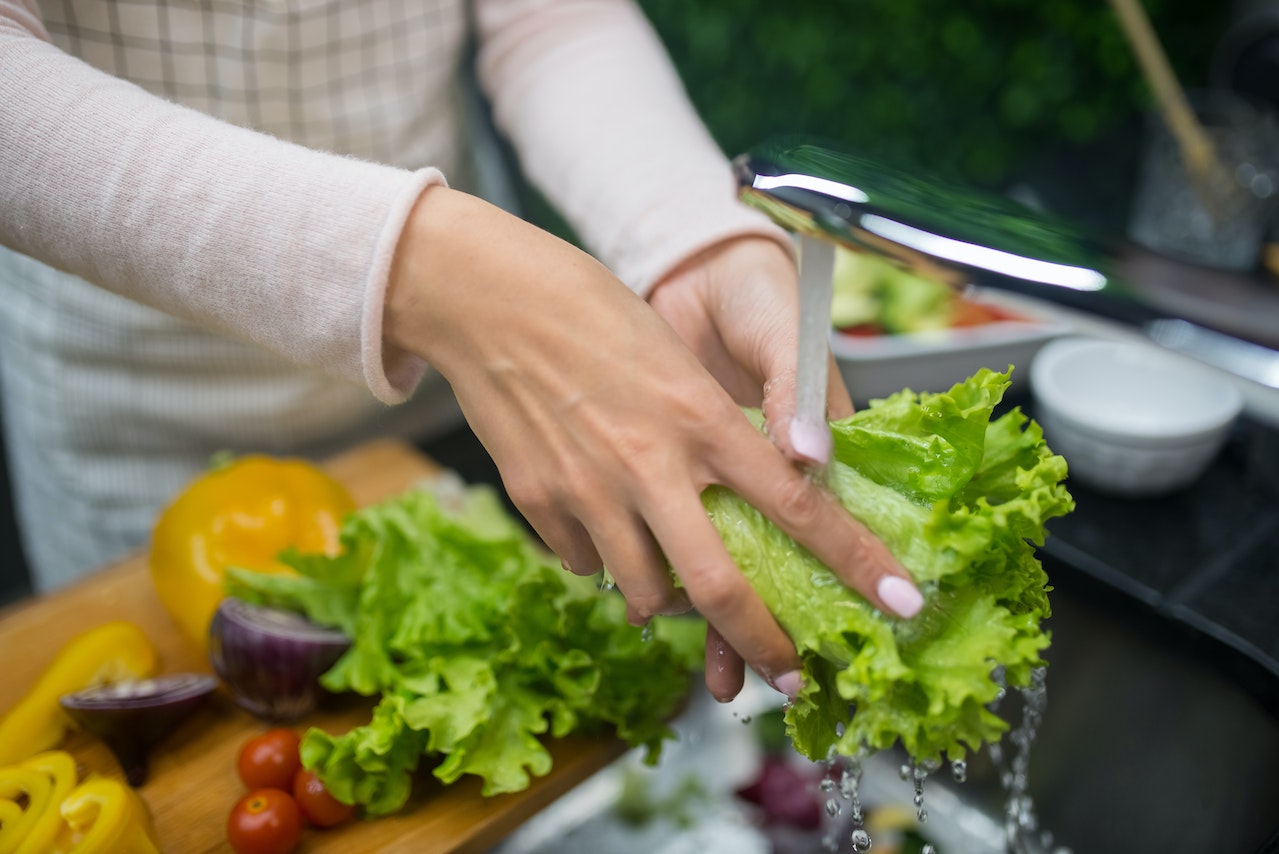
To clean fruit and vegetables when you’re cooking, all you need to do is give them a brief rinse under running water. This helps to wash away pesticide residues, dirt, sand and germs. Plain room-temperature water is fine; you don’t need any type of special “produce wash.”
For potatoes, radishes, carrots and other hard root veggies that have nooks and crannies, buy a veggie brush. This brush can scrub away dirt. Wash veggies before peeling them. That way, dirt doesn’t get inside the produce.
How Can You Avoid Bacteria on Produce?
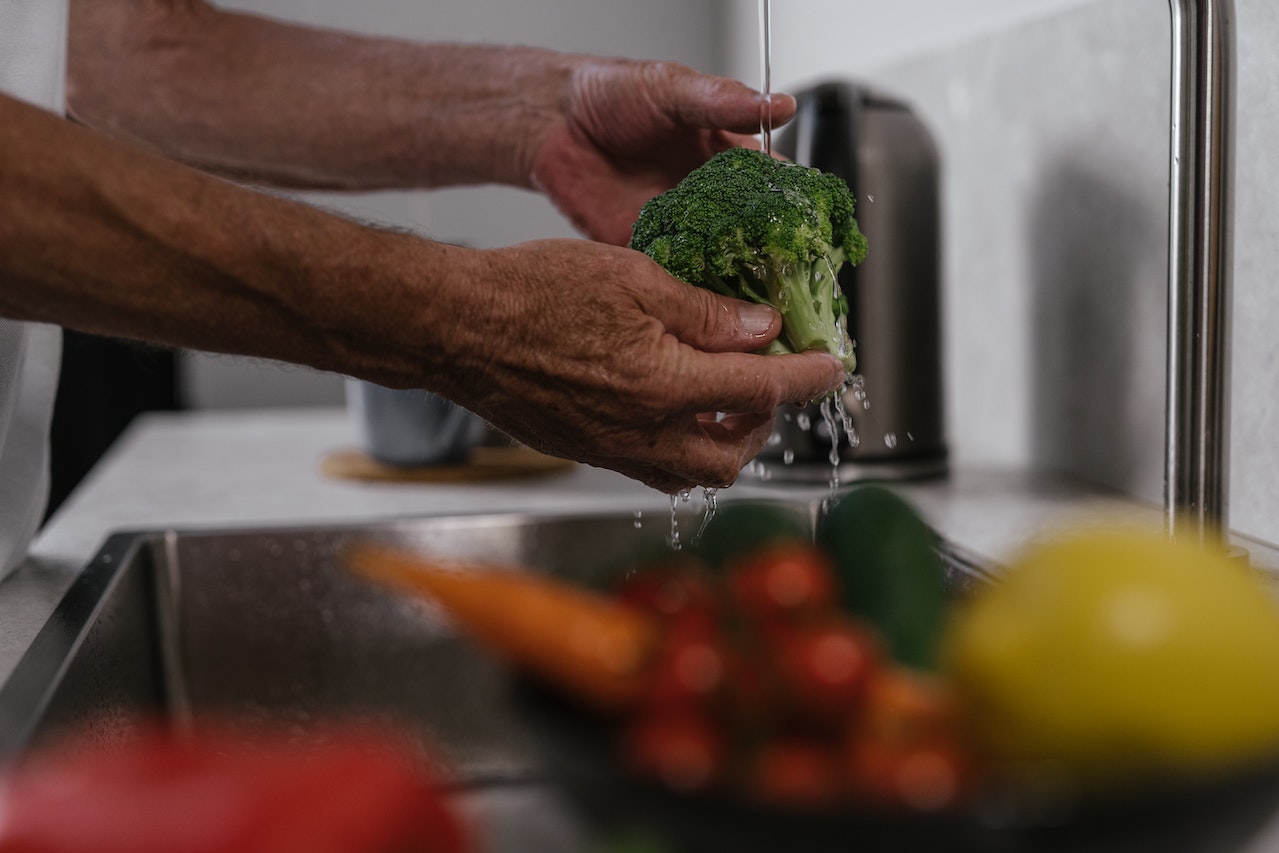
Most of the time, bacteria are in dirt. By rinsing away the dirt, you also get rid of the germs. Distilled water is effective at getting rid of many microbes.
Some vegetables can be tricky to clean properly, such as cabbage, lettuce and broccoli. You may want to rinse leaves individually. Get rid of the first few leaves on the head of lettuce or cabbage.
It’s important to keep in mind that rinsing doesn’t get rid of all types of bacteria, such as E. coli. If you hear about an outbreak for certain produce, it’s best to avoid that item for a while, at least for raw produce such as salad greens and tomatoes. Boiling veggies for a minute or two is enough to kill bacteria.
How Can You Keep Your Prep Surfaces Safe?
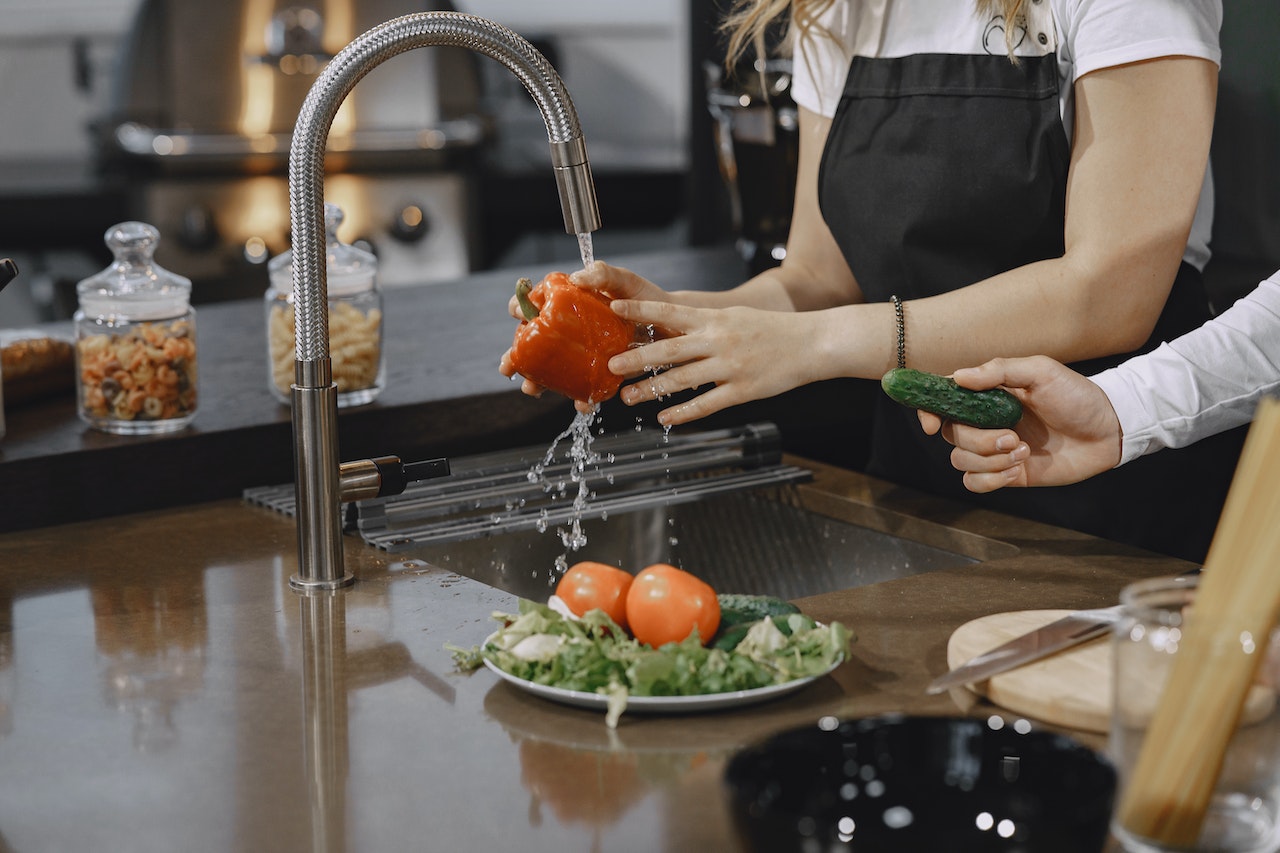
Wash your hands before you start cooking. Clean your countertop and cutting board with disinfectant or soap any time you handle raw meat, eggs or flour. Rinse prep surfaces with water after disinfecting to avoid transferring any chemicals to your food.
To recap: Soap for your hands is great. Soap for produce isn’t. Stick to water for cleaning vegetables.
